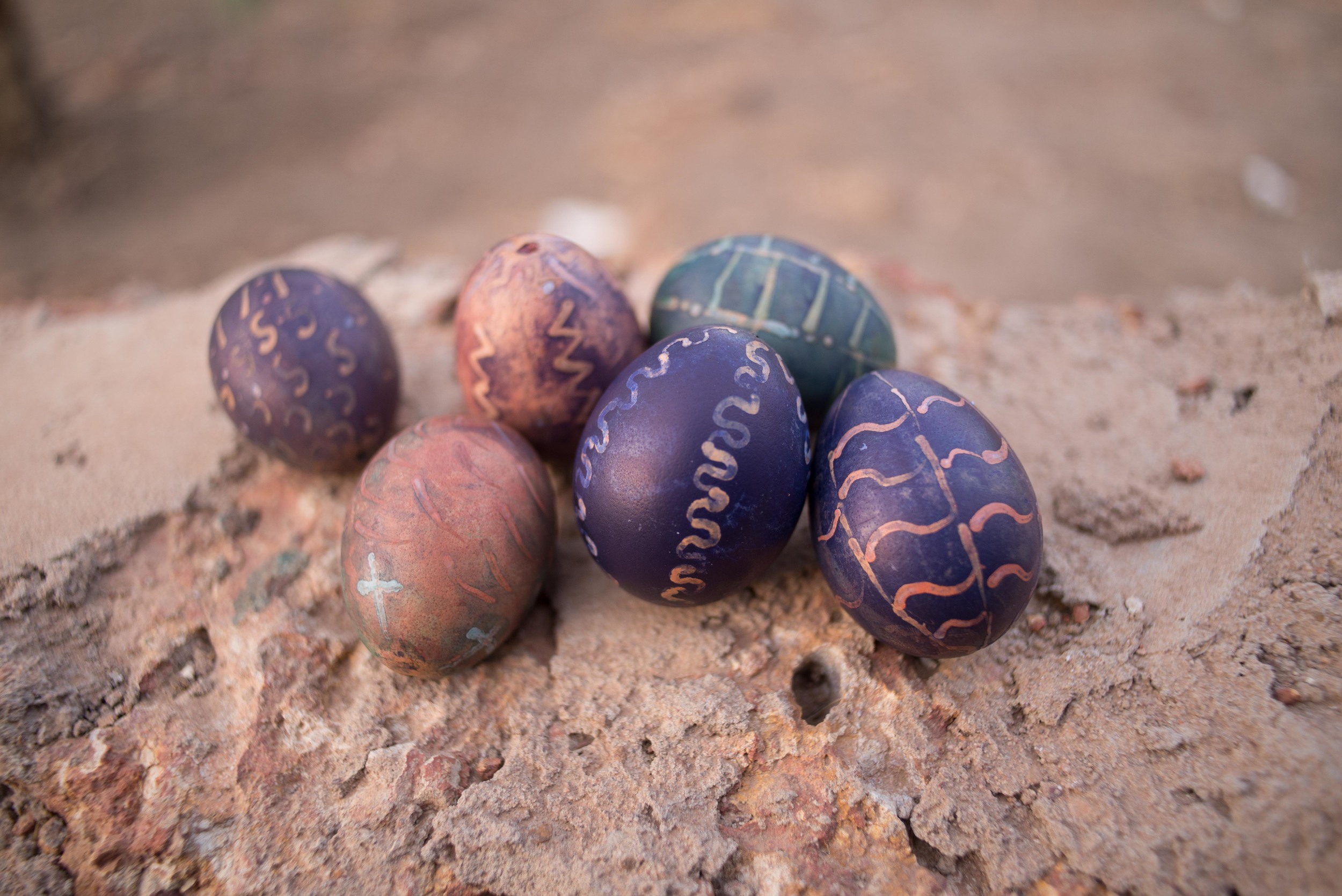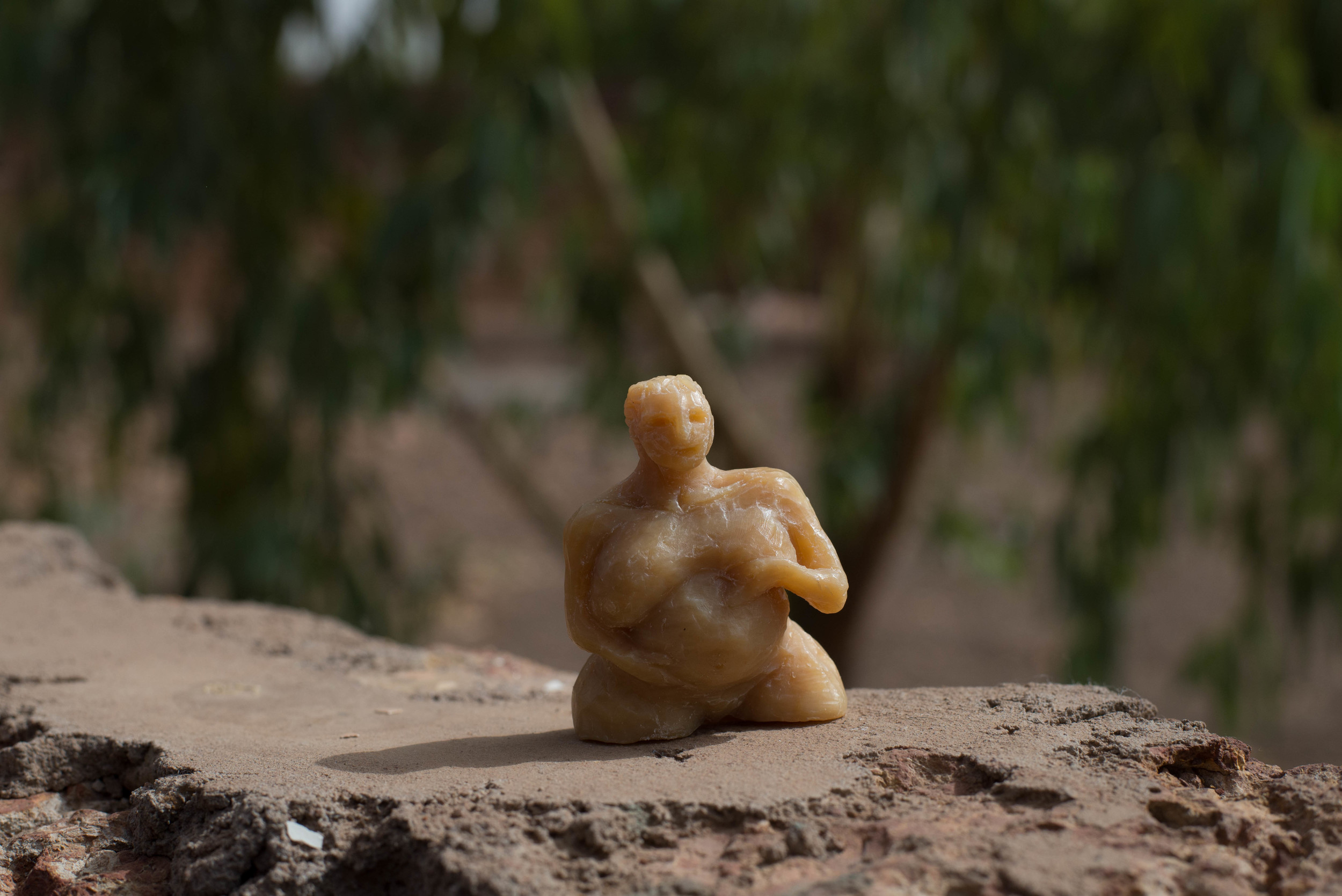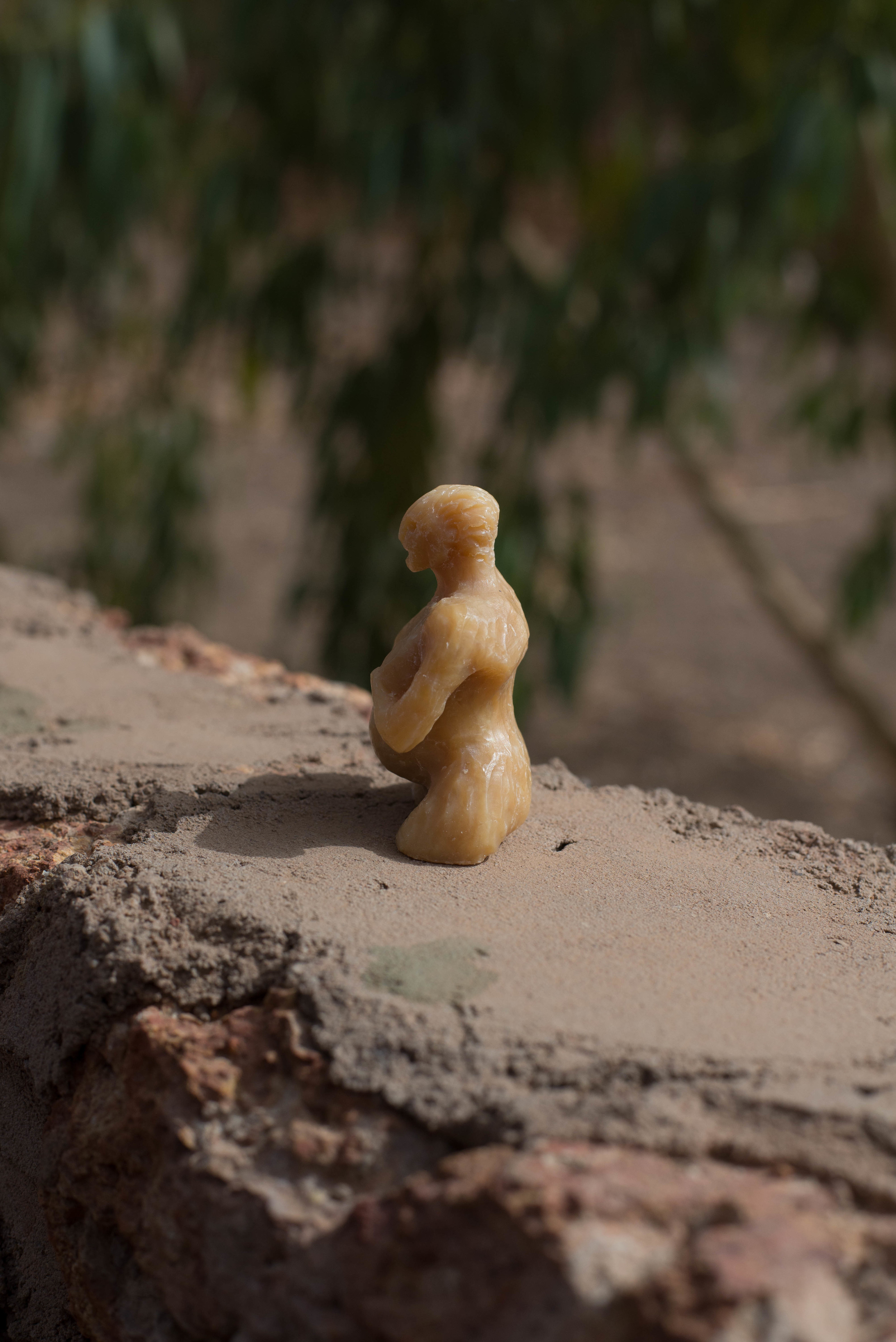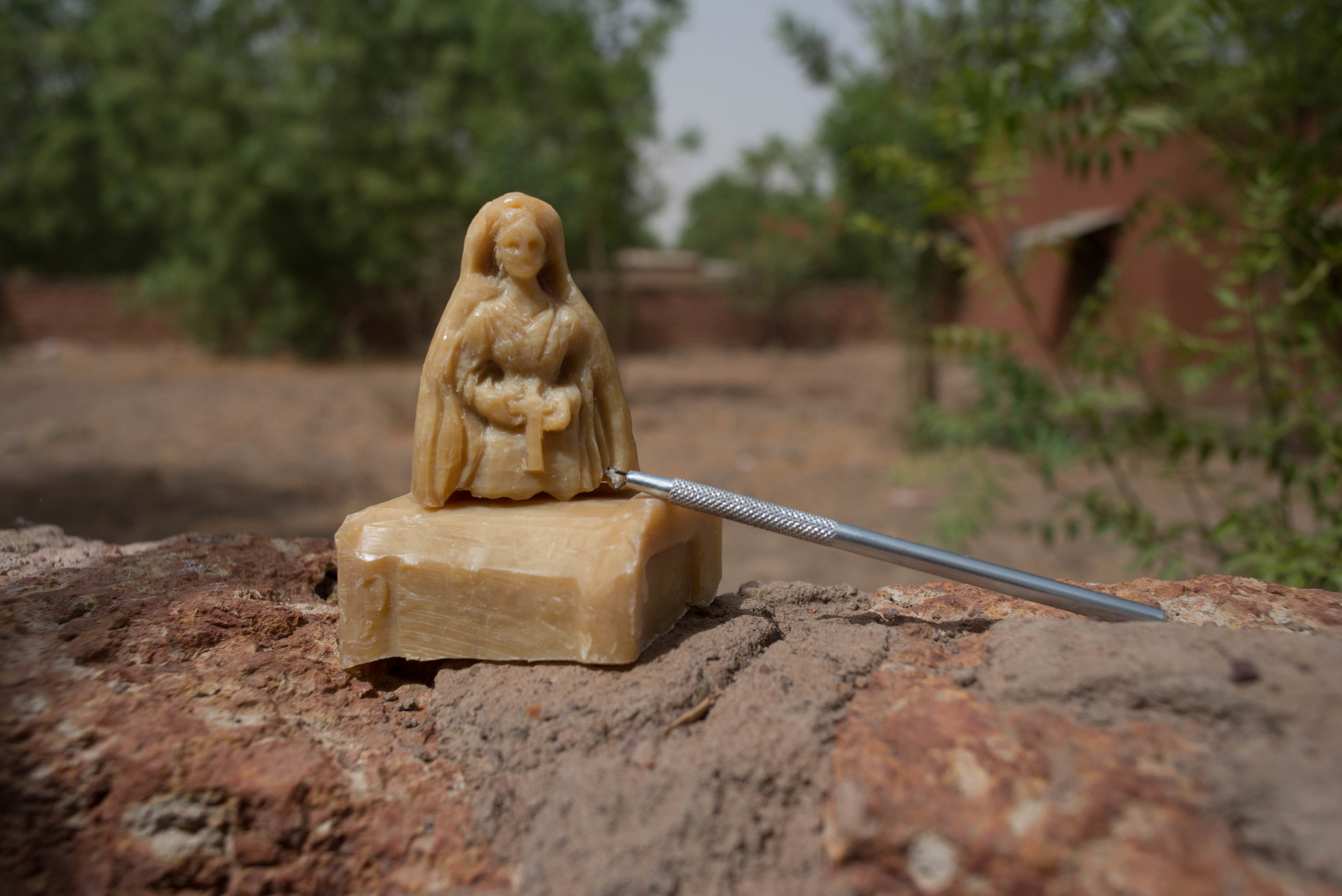I believe that the pillars of friendship lie firmly on two foundations: Food and art. Those of you that know me well will understand how self serving-this definition is-but I nonetheless used both of these things to make friends during my first month in Solenzo. When I first got here, a mutual fear created a seemingly insurmountable space between me and the 52 girls living at the center, and my first week was spent psyching myself up to go outside and then thinking the better of it. Who would willingly venture into a veritable ocean of hormonal activity with nothing but about six words in the local language to keep you afloat? I decided it would be like attempting to traverse the Pacific from Australia to Peru with a pool noodle, and I was still adjusting to the idea of getting getting feet wet.
As you may have guessed, a week of doing nothing inside my tiny house got old really fast. Business in the capital had called Mme. Dioma away for the week and the nuns were mostly too busy to show me around, so I was left to my own devices. I’d like to say that this was the moment that I burst out of my shell and conquered my fear, but this is actually the time that I went completely stir crazy and ran away to the regional capital for the weekend. While I was sitting by the pool drinking a Guinness, I asked myself if this was going to be how it was for me: Every weekend I’d devise an excuse to get away and find myself slirping an overpriced beer at some expat hang out four hours away from where I was supposed to be changing lives and pulling rainbows out of my butt. Perhaps the Peace Corps was harder than I thought.
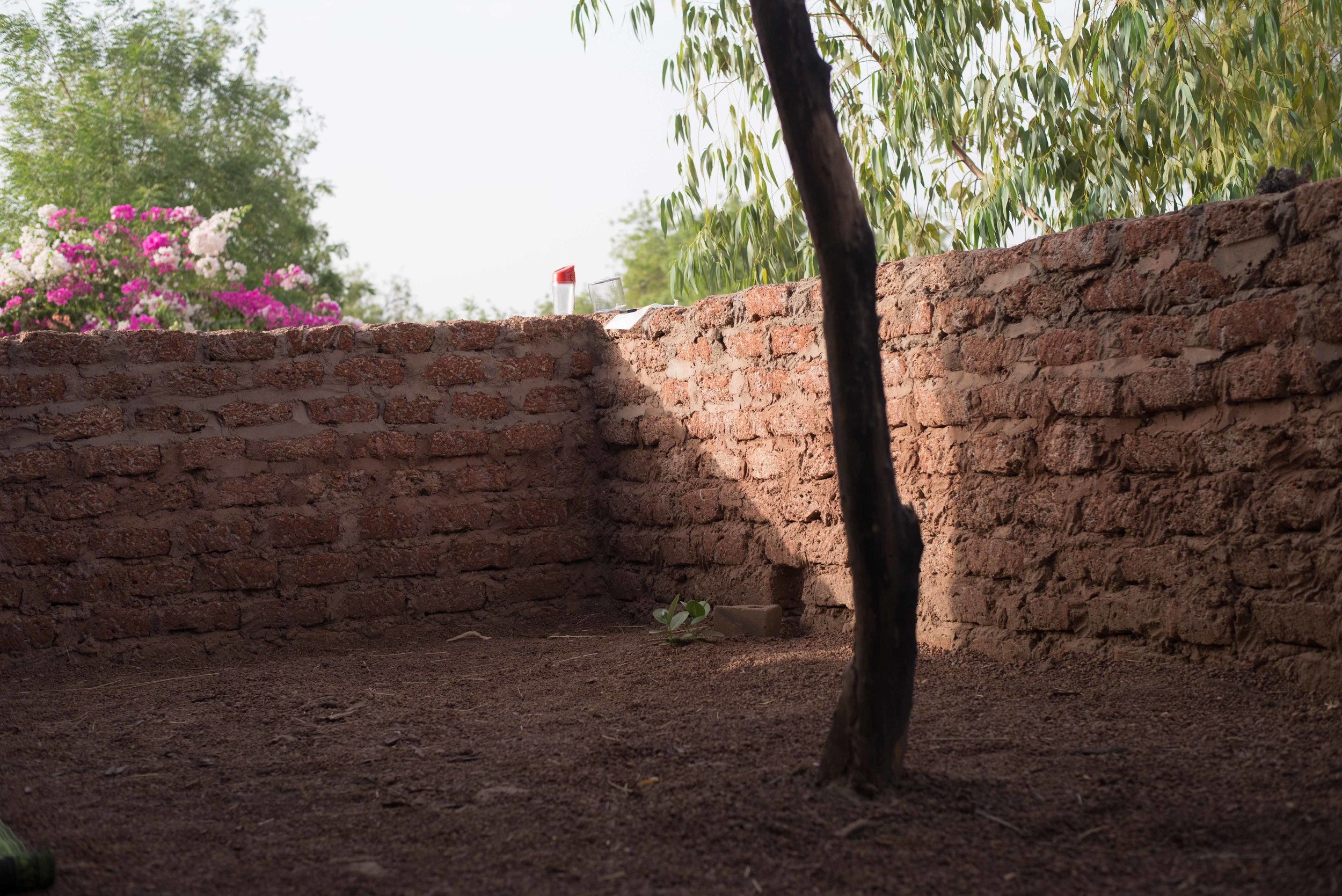

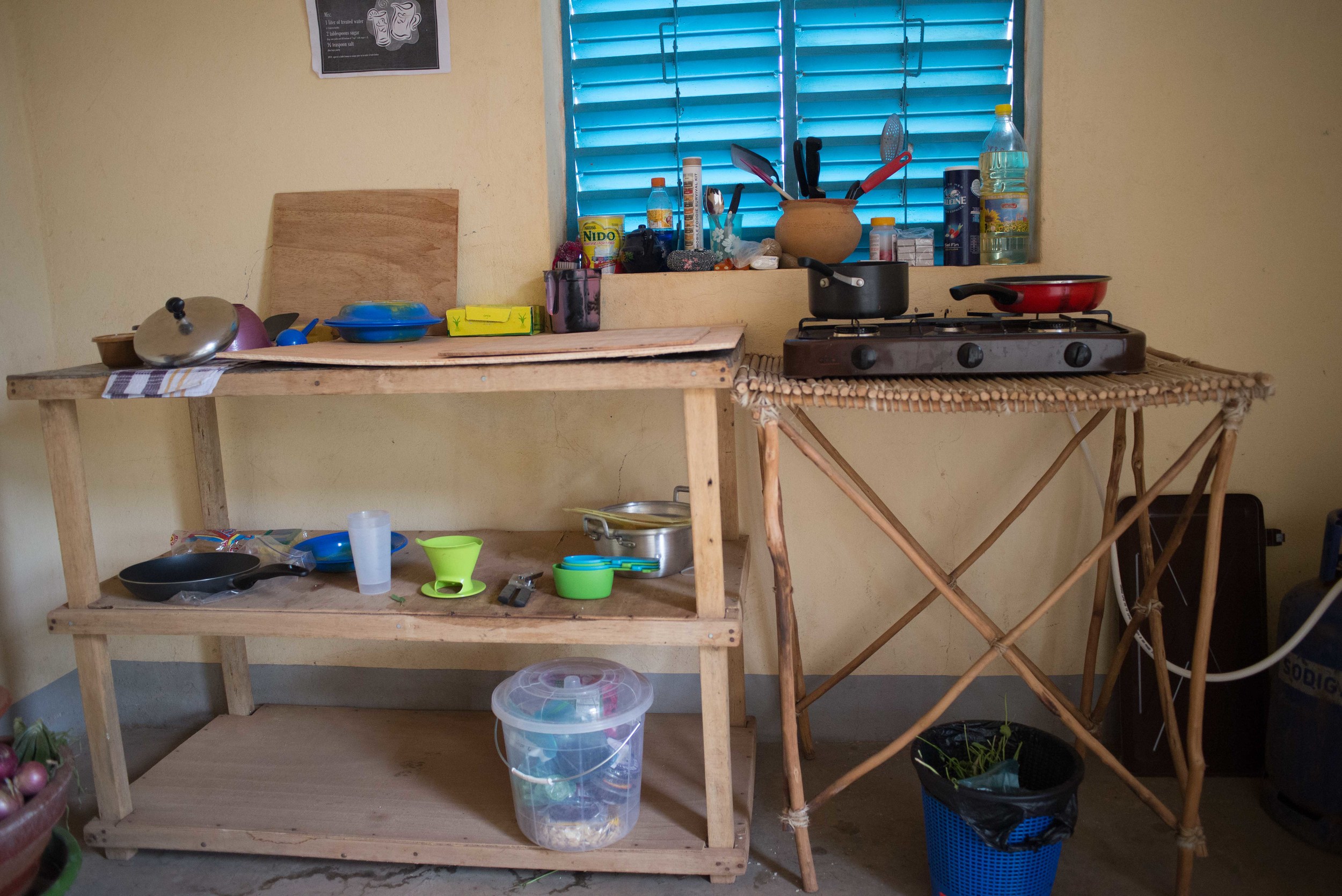
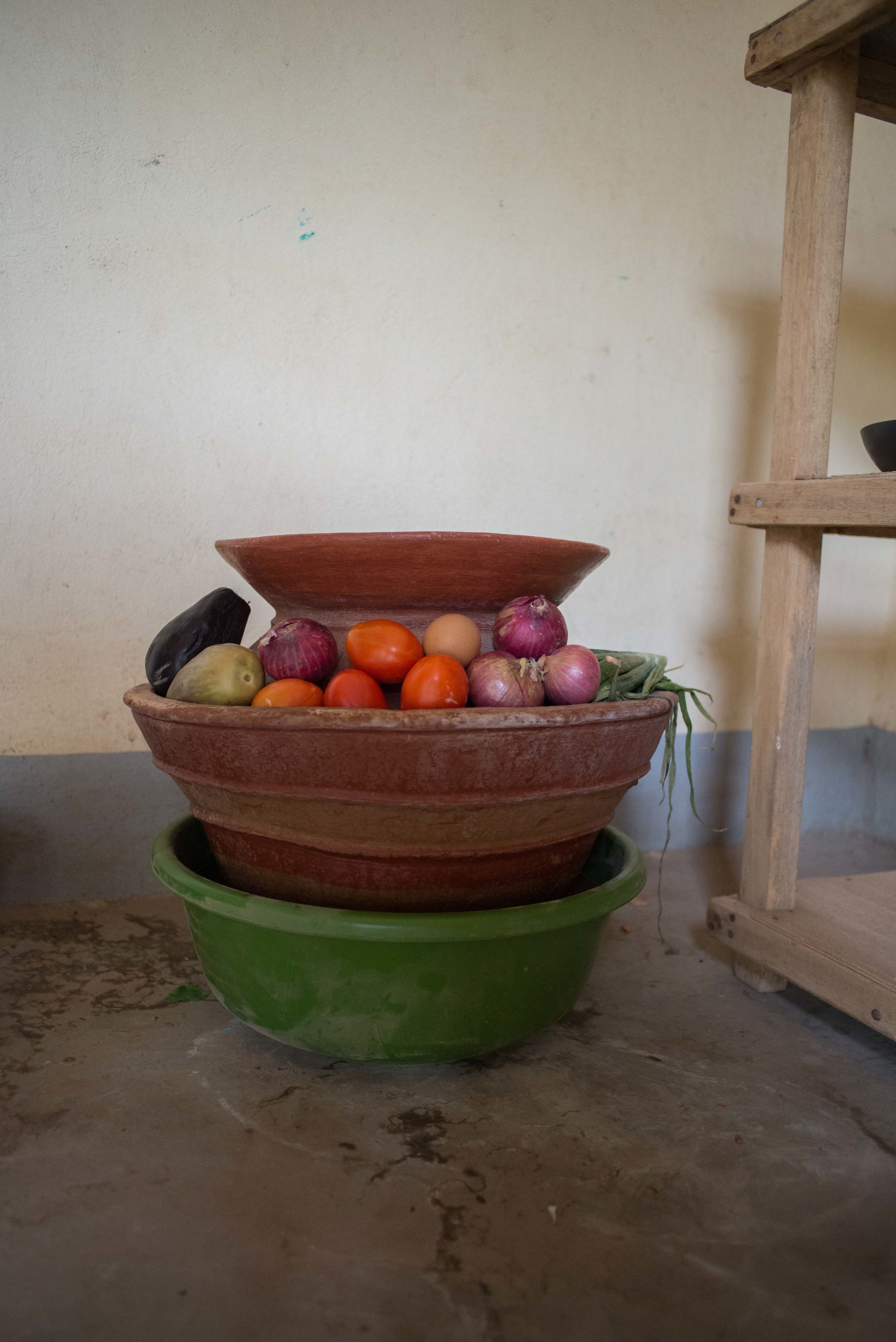
Solenzo is a beautiful site full of potential and teeming with need, but its large size makes it harder to build a community. A wise friend of mine (who happens to be teaching in Cameroon with the Peace Corps) told me that my community didn’t need to involve everyone, rather that I could choose who to become close with and build stronger relationships with. I just needed to start somewhere. And when communication fails, there is only one way I knew how to make friends.
When I got back to site I jumped on an idea I had been playing with after successfully sharing some of my Trader Joe’s snacks with the nuns: I made ginger candy. Ginger and sugar (the only two ingredients, recipe courtesy of my mother) were easy to find in Burkina, and although the final result wasn’t exactly worthy of shelf space at a popular hipster grocery store, the taste wasn’t bad at all. I brought little baggies of my spicy creations to the nuns, Mme. Dioma, and even a neighbor. They were met with warm receptions.
Candied ginger.
Next I focused my attention on winning over the girls by using a technique I had used in Zoro. I pulled a chair up to a small group of them on a Tuesday afternoon and began to sketch. They giggled and teased each other, eager to see what my pencil was doing and slowly (very slowly), warming up to me as I made bad jokes in French and recited the few Djula words I knew. I crept into the weaving building and repeated the technique, attracting a small crowd and a few girls who were less timid. Peevishly they tried to teach me how to embroider hankerchiefs as they had been taught to, and I quickly discovered that the needle and thread (much like driving a stick shift) are not my forte. They taught me Djula words which I promptly forgot and giggled when I managed to botch even the simplest of sounds. Who cares? Laughter means I’m getting somewhere.
Germane untangling her loom.
Embroidery, at which I am terrible.
After a week of all that good integration and a considerable amount of time spent patting myself on the back for my innovation, all 52 of the girls abruptly departed for a two week Easter Vacation. Luckily, Jacqueline was there to save me, the young (and very Catholic) teacher/task master to the girls who has been living at the center since October, 2014. Hailing from Kinshasa, The DRC, Jacqueline is a deeply religious, entirely goofy, upright and excellent to talk to. Her impeccable French and willingness to converse makes her wonderful to spend time with, and I often end up using her as a link between myself and the girls.
The emptiness of the center during Easter Vacations forced me out of its walls. One day I boldly went to sit with my neighbors, who live just outside the center, armed with nothing but watercolors and some Bob Marley tracks on my tiny Burkinabe radio. As I painted them they challenged me with commands in Djula, gently repeating until I understood. Sit down, have some dolo*, draw me next. With my foot in the door I returned to sit with my neighbors several times over the next few weeks. Burkinabe relationships are a lot of work: You have to put in the face time. I became a master at the ‘sit-and-do-nothing-with-the-Burkinabe’ skill and I turned into a creative machine. I made more ginger candy, the uglisest Easter Eggs in the world for Easter, which I gave to the nuns, more drawings and even started carving and giving a way little figurines out of soap. And it got easier. My Djula started getting better. More people started seeking me out and showing me around. And when the girls came back, even they started coming up to me of their own free will. Look at me. Look at me integrate. Peace Corps A+.
*Dolo is a very popular alcoholic local drink made from fermenting millet. ‘Dolotoires’ can be found all over Burkinabe villages, serve all day out of calabash shells and play raucous music late into the night (every night.) There are about five within earshot of me. For some images of how dolo is made and a little more info, see my photography blog: Drinking, Dancing and Weaving
